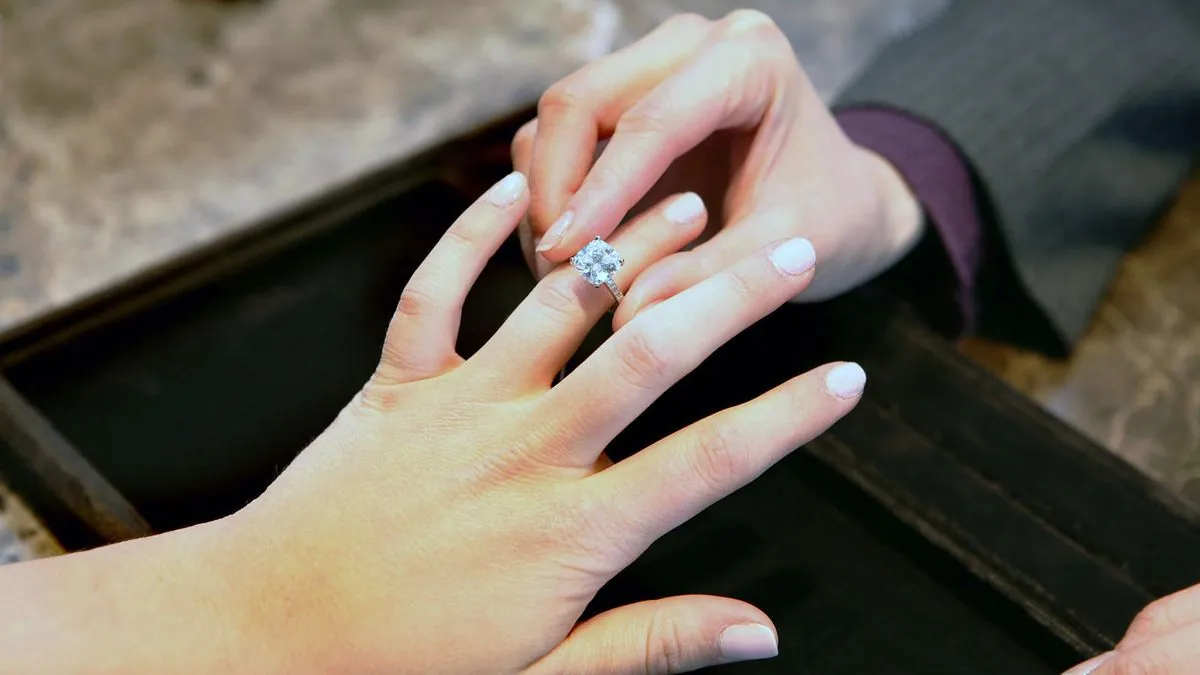$70,000 Ring Sparks Legal Battle, Challenges Engagement Gift Laws
A couple's breakup leads to a Supreme Court case over a $70,000 engagement ring, potentially reshaping Massachusetts law on conditional gifts and highlighting modern relationship complexities.

In a case that highlights the complexities of modern relationships, the Massachusetts Supreme Judicial Court is set to consider arguments regarding the ownership of a $70,000 Tiffany engagement ring. This legal battle, which began over 6 years ago, stems from the breakup of Bruce Johnson and Caroline Settino, who met in Boston during the summer of 2016.
The couple's whirlwind romance, marked by world travels and luxury gifts, culminated in a proposal featuring the expensive ring in late 2017. However, their relationship deteriorated, leading to a dramatic split and subsequent legal dispute. The case has now reached the state's highest court, with potential implications for engagement ring laws.

The legal journey began in 2018 when Johnson sued his former fiancée for the return of the ring. The initial ruling by the Brockton Superior Court in 2021 favored Settino, citing Johnson's fault in the separation. However, this decision was overturned by the Massachusetts Appeals Court in 2023, prompting Settino to appeal to the Supreme Judicial Court.
This case brings to light interesting historical and cultural aspects of engagement rings. The tradition dates back to ancient Rome, with the first diamond engagement ring given by Archduke Maximilian of Austria to Mary of Burgundy in 1477. The popularity of diamond engagement rings surged in the 1930s due to a De Beers marketing campaign, leading to the current average cost of $5,500 in the U.S.
The legal concept of "conditional gifts," which is central to this case, has its roots in English common law. Currently, most U.S. states treat engagement rings as conditional gifts to be returned if the marriage doesn't occur, regardless of fault. This approach differs from the UK, where engagement rings are generally considered "absolute gifts."
"I was a teacher, I had 60 people from my school coming to the wedding. We were putting them all up for two days at the resort, we had all sorts of things…so when he called off the wedding and said I was cheating, I was devastated."
Critics argue that the conditional gift approach perpetuates gender bias. Rebecca Tushnet, a Harvard Law School professor and engagement ring law expert, notes, "Absent the history of sexist suspicion of women, there would not be a special rule for the ring."
As the Massachusetts Supreme Judicial Court prepares to hear arguments, the outcome could potentially reshape state law on engagement rings. This case serves as a reminder of the evolving nature of relationships and the legal complexities that can arise when they end.


































